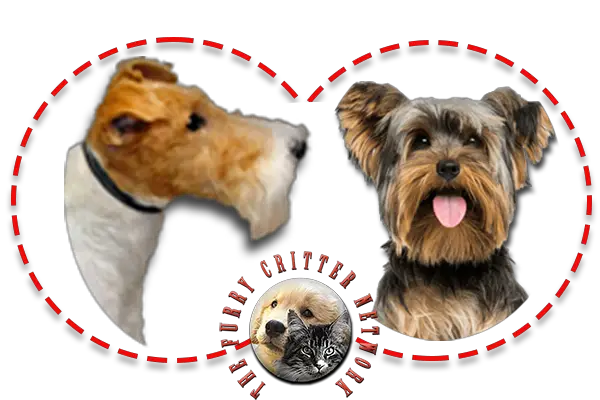Behavior
The ideal Yorkshire Terrier character or "personality" has been described by the Kennel Club as having a "carriage very upright feisty" and "conveying an important air". Though small, the Yorkshire Terrier is active, very protective, curious, and fond of attention. Yorkshire Terriers are easy going dogs that are great with children and older adults. If trained correctly, these dogs are very child friendly, easy going, and likes to be played with.
Yorkshire Terriers are an easy dog breed to train. This results from their own nature to work without human assistance. They are naturally smart and quick to learn with many being food and/or praise motivated. Because they were developed as a working breed, many need a lot of both physical and mental stimulation with both long walks/runs but also indoor games and training to keep their mind busy. They are known for being yappy, but many have reported that a contented Yorkie is a quiet one that will happily curl up on your knee in the evening. But they are all individuals, with some being much more laid back than others, and the breeder should ideally be able to advise on the needs and temperaments of their particular line. Yorkies are easily adaptable to all surroundings, travel well, and make suitable pets for many homes. Due to their small size, they require limited exercise but need daily interaction with people. They thrive on attention and love. Many are more timid around other dogs and prefer to stay close to their humans for comfort.
Yorkshire Terriers do tend to bark a lot. This makes them excellent watchdogs, as they will sound the alarm when anyone gets close. A barking problem can often be resolved with proper training and exercise.
Yorkshire Terriers are ranked 34th in Stanley Coren's The Intelligence of Dogs.
The Yorkshire Terrier is well suited to indoor living, but this sporting dog requires exercise. Daily brushing and combing is required. This breed should be professionally groomed monthly.
Health
Some Yorkshire Terriers are prone to slipped stifle, bronchitis, eye infections, early tooth decay, poor tolerance of anesthetic, and delicate digestion. Exotic treats should be avoided. They sometimes suffer paralysis in the hindquarters caused by herniated disks and other problems of the spine. Falls or knocks can cause fractures of fragile bones. Abnormal skull formations in Yorkshire Terriers measuring less than 8 inches (20 cm). Dams often have trouble delivering puppies and sometimes need to have cesareans. Be sure to feed Yorkshire Terriers some type of dry food or bone to chew on to help keep their teeth clean and strong. They should get their teeth cleaned at the vet to keep them from falling out and creating infection.






